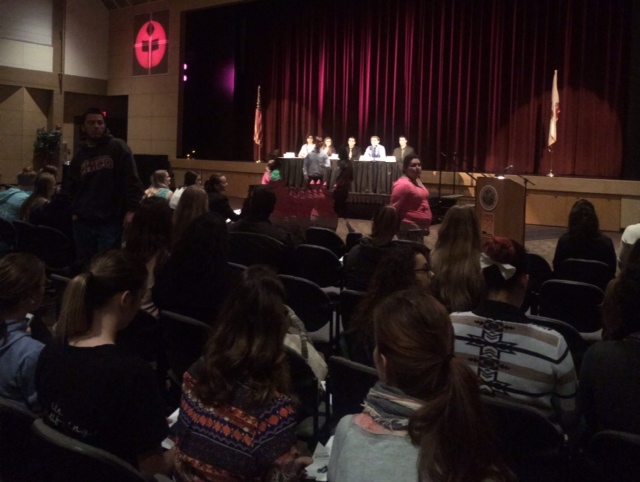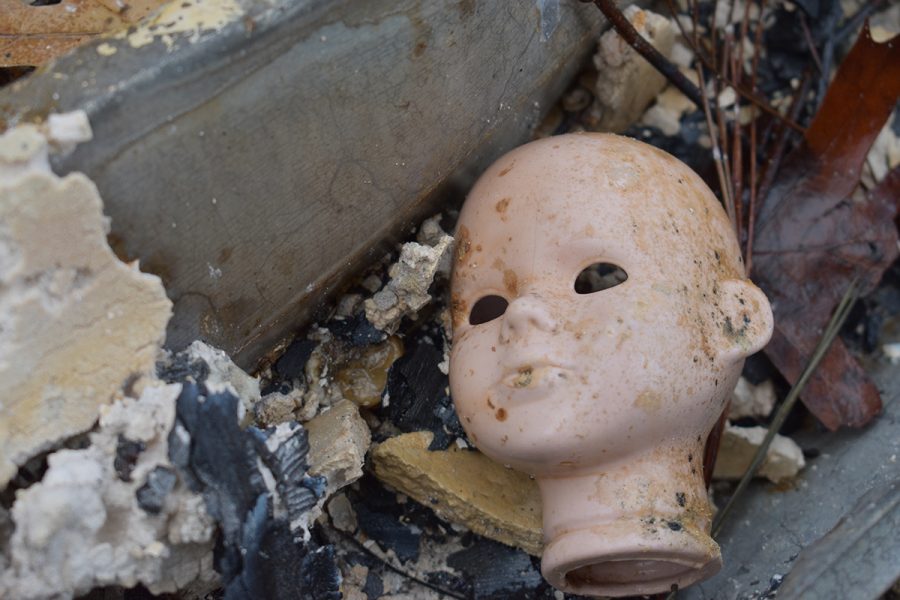
Every year in Chico and at colleges across the country, there are deaths due to over-drinking or hazing within the Greek community.
On Feb. 2, 2005, Chico State student Matthew Carrington died after consuming mass amounts of water during a hazing ritual. After this event, hazing became grounds for felony prosecutions if the actions were serious enough.
On Wednesday, Student Legal Services and Juvenile Rights presented a Greek mock trial in the Bell Memorial Union. The mock trial was based on a a female student getting brain damage resulting in a four-day coma after a planned pregame and bar crawl between an on campus fraternity and sorority.
The simulation of such a severe outcome was intended to unify the Greek community by showing it how these actions can hurt its community.
The mock trial had multiple components including a parent statement, Greek council opinions and a lieutenant from the Chico Police Department.
Haley Stultz, a junior legal studies major and minor in criminal justice, coordinated the event and emphasized how the simulation is intended to bring the community together in a constructive way.
“Ultimately, we were trying to achieve Greek unity, and being able to look out for each other,” she said. “It’s also important for them to realize there are consequences for your actions and when things do get taken too far, these can be the repercussions that happen.”
After the coordinator introduced the trial and read the fact pattern, the accurate order of events, a real 911 call of an alcohol-induced death that happened at Chico State was played.
During the next part of the trial, Greek members stood in line and questioned the accused about the incident. The council discussed suspensions and other consequences, and eventually resulted in the permanent removal of the mock fraternity.
After the community interaction with the trial, public professionals with experience in dealing with hazing and partying spoke to the audience. One of the people who came to speak was Lt. Dave Britt, who has first-hand experience with hazing-related deaths.
“My ambulance crew is going to come in and they’re going to start pumping on his chest, and what you’re probably going to hear are bones cracking because we are going to break their ribs,” he said. “Then we are going to lock down the scene. We keep everyone there until they give statements. Then the detectives will wisp all of you away and you can’t do anything about it.”
Jack Kelly, a junior business administration major, felt affected by Britt’s speech and the reality it brought to these kinds of situations.
“The police officer was talking about taking every person present at the time of the incident to the station and holding them for questioning for 12 hours,” he said. “I would hate to be in that position and potentially rat out someone I know and contribute to the demise of their life, or lie to the police officers and screw yourself over.”
After Britt spoke, a representative from Student Judicial Affairs and a local attorney discussed the real repercussions people can face when partaking in hazing.
The mock trial closed with Matthew Carrington’s mother speaking about the importance of putting an end to hazing, and emphasizing that what the Greek community does affects a lot of people — more than it could imagine.
“Having the mother speak, in my opinion, was one of the most effective parts of the trial,” said Rebecca Tuttle, sophomore recreational event management major. “It put an emphasis on how an injury or death affects so many other people, and that kind of pain doesn’t go away, so why would you put anyone’s life in danger just to prove loyalty to a frat or sorority.”
Lauren Steele can be reached at [email protected] or @thrasherxlauren on Twitter.








